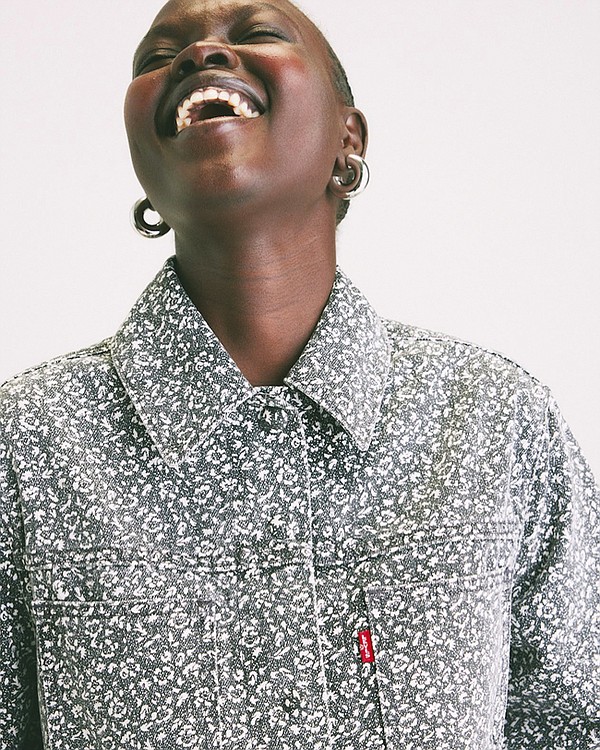SUSTAINABILITY
Creativity for Good
With an increasing number of consumers expecting brands to be facilitators in consuming while doing better for the environment, what appeared as forward a couple of years ago now is a prerequisite. As new thrilling, bold initiatives become the new horizon to thrive for, here is a curation of inspiring projects, some of them for outside of the clothing world but offering interesting possibilities for the fashion industry.
Nature Coatings, an American biochemicals company, created BioBlack TX to replace petroleum-derived carbon black for all silk-screened and rotary printing uses, denim, leather or non-leather coatings, patinas, packagings, pigment dyes, etc. Made 100 percent from pre-consumer industrial wood waste from FSC-certified forests, it is traceable throughout the entire supply chain, and no chemicals are added during the manufacturing process.
Produced in a closed circuit, its only by-product is steam, which is then captured and used to power certain parts of the production process. Carbon-negative, it retains more CO2 than it emits, thus counteracting greenhouse-gas emissions based on a preliminary life-cycle analysis. It also has the top lightfast index of 8/8, which means that it will neither fade nor change color. Its current production capacity—70 tons per month—makes it a large-scale solution for various industry actors ranging from the Kering Group to Levi’s, Vollebak, Target and Weekday.
Japanese biotech startup Spiber uses synthetic biology to produce new protein materials through microbial fermentation of plant-derived ingredients, creating new polymers to replace animal-derived fibers. Its spun fibers are almost as soft as cashmere and offer almost equivalent thermal and breathable properties.
Its studies show that the technology emits fewer greenhouse-gas emissions, requires less water and causes 97 percent less land-use damage than cashmere production. Brewed protein fibers are completely biodegradable, disintegrating in the soil or the marine environment.
Spiber intends to exclusively work in the future with agricultural waste in a circular fashion, as will soon be the case in its U.S.A. production unit, which will operate with co-products from the local corn industry derived from sustainable and regenerative farming practices. It has already collaborated with many brands including The North Face, Goldwin, Ron Herman and Pangaia.
German-Japanese home-linen company Aizome, whose proprietary dyeing technologies aim at creating textiles that are both healthy and environmentally friendly, created Wastecare, a premium skin-care product made from wastewater from plants.
The ecological dyes sourced by Aizome for its linen collections are made from plants known to provide health benefits, an idea born after one of the founders’ mothers took ill. Looking for a way to recycle the consequently precious wastewater, the company found a way to encapsulate its pain-relieving, anti-inflammatory and skin-rejuvenating properties into skin care. What a genius idea to repurpose textile-mill waste and turn it into an opportunity for horizontal developments such as clothes that are good for your skin.
Dutch designer Christien Meindertsma developed robots capable of constructing three-dimensional structures in wool. Her objective—find a new outlet for the 1.5 million kilograms of wool thrown away each year in the Netherlands.
The Flocks Wobot robot works in the same way as a 3D printer to build layers of wool, using a form of felting instead of a filament to create three-dimensional woven structures. In addition to using natural virgin wool, it is also possible to blend it with recycled wool to enrich the color palette.
Applications to the apparel industry are not planned yet, but with the frontier between fashion and object design getting blurrier, one can dream of 3D-printed clothes that would create less waste and be produced locally to save shipment costs and the impact on the environment.
Peclers Paris is a leading lifestyle trend-forecasting agency focused on building brands through the expertise of an international team of designers, strategic planners, futurists and consultants. The company has headquarters in Paris, Los Angeles and Shanghai.






















